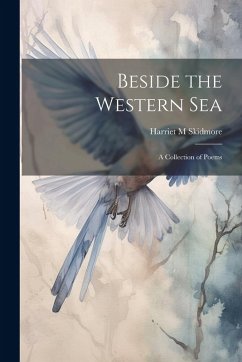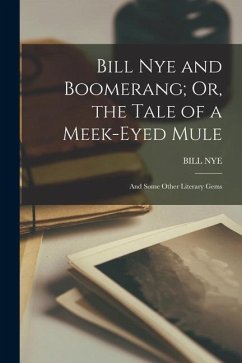
Evangeline: A Tale of Acadie
Versandkostenfrei!
Versandfertig in über 4 Wochen
6,99 €
inkl. MwSt.
Weitere Ausgaben:

PAYBACK Punkte
3 °P sammeln!
In "Evangeline: A Tale of Acadie," Henry Wadsworth Longfellow weaves an intricate narrative that explores themes of love, loss, and resilience against the backdrop of Acadian expulsion in the 18th century. Written in a lyrical and evocative style reminiscent of epic poetry, Longfellow employs a series of metrical patterns that echo the oral traditions of storytelling. The poem follows the protagonist, Evangeline, in her quest to reunite with her beloved Gabriel, reflecting both the personal struggles of its characters and the broader historical context of displacement and longing experienced b...
In "Evangeline: A Tale of Acadie," Henry Wadsworth Longfellow weaves an intricate narrative that explores themes of love, loss, and resilience against the backdrop of Acadian expulsion in the 18th century. Written in a lyrical and evocative style reminiscent of epic poetry, Longfellow employs a series of metrical patterns that echo the oral traditions of storytelling. The poem follows the protagonist, Evangeline, in her quest to reunite with her beloved Gabriel, reflecting both the personal struggles of its characters and the broader historical context of displacement and longing experienced by the Acadian people. Longfellow, an esteemed figure in American literature, was deeply influenced by his own cultural heritage and a commitment to preserving the narratives of marginalized communities. His extensive travels through Europe and his scholarly pursuits ignited a fascination with folklore and history, leading to a poignant exploration of the Acadian saga in this work. This blend of personal sentiment and historical awareness showcases Longfellow's capacity to articulate the complexities of human emotion amidst social upheaval. "Evangeline" is a compelling read for anyone interested in the confluence of history and literature, as it not only narrates a mesmerizing tale but also serves as a vital preservation of cultural memory. Longfellow's masterful storytelling invites readers to reflect on themes of hope and endurance, making this classic an essential addition to any literary canon.













